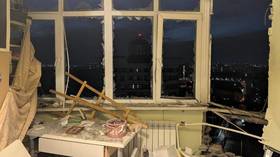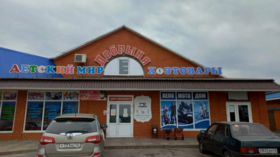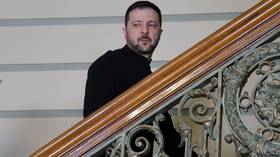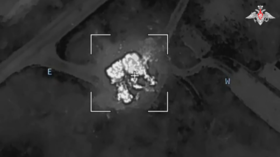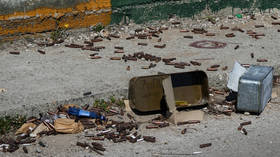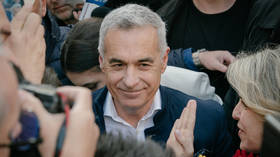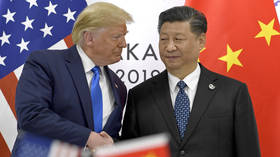With increased support from Moscow following Minsk political crisis, Belarus has become a ‘military district’ of Russia – Estonia
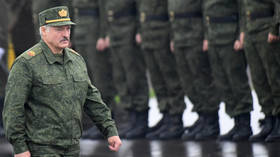
Minsk and Moscow have integrated their militaries so closely that Belarus is essentially a military district of Russia. That's according to the Estonian Intelligence Service, which published its annual report last week.
The publication focused mainly on supposed threats posed to the rest of Europe by Russia, while also touching on China and domestic politics in the former Soviet Union.
“Belarus remains Russia's most important military ally,” the report said, noting that the Union State agreement between the two nations means their armed forces have high-level cooperation.
According to Estonian intelligence, due to Minsk's political crisis in 2020, Belarus has become a military district of Russia. This area, they say, now poses an immediate threat to neighboring NATO members.
“Belarus is a necessary buffer for Russia on its western border,” the document says. “Russia can use Belarus as a bridgehead and deploy its troops there, blocking NATO's access to the Suwalki Corridor.”
Also on rt.com Lavrov says EU turned anti-Russian after 2004 accession of ‘immature’ Baltic nations & other states with historical grievancesThe Suwalki Corridor is a stretch of land between Belarus and Russia's Kaliningrad Region, on the Baltic Sea coast. Between the two countries lies Poland and Lithuania, both NATO members.
“The peacetime deployment of Russian troops to Belarus cannot be completely ruled out,” it said.
However, according to intelligence chief Mikk Marran, Tallinn is itself in little danger in the upcoming year. In a quote on the Ministry of Defense website, Marran noted that Russia poses a potential military threat to Estonia, but nothing is likely to happen.
“We do not see a direct threat to Estonia in 2021; however, we cannot completely rule out a miscalculation on the part of Russia regarding NATO's collective defense,” he said.
The report also claimed that the Kremlin is looking to replace embattled Belarusian leader Alexander Lukashenko, and replace him with someone else friendly to Russia.
“The Kremlin knows that continued support for Lukashenko jeopardizes the attitude of Belarusians towards Russia, which has so far been positive,” the report says. “But Russia also wants to avoid Lukashenko being ousted by protesters at all costs, which could encourage the people in Russia to follow suit.”
Also on rt.com ‘We have lost the streets,’ Belarusian opposition figure Tikhanovskaya concedes as protests dwindle, predicts revival in springBelarus' political unrest began on August 9, when Lukashenko was awarded victory in his sixth presidential election. According to official results, which are widely believed by the opposition to have been rigged, 80.1 percent voted for the long-time leader. After the closure of polling stations, demonstrations began against the alleged falsification of results. Days later, opposition figure Svetlana Tikhanovskaya, thought by her supporters to have been the true victor, fled to Lithuania.
Following the election and the crackdown on protesters, the European Union sanctioned Lukashenko and 14 other Belarusian officials.
Earlier this month, Russia's Minister of Foreign Affairs Sergey Lavrov claimed the EU has been influenced to become more Russophobic since 2004, when the Baltic nations, including Estonia, joined the bloc. These states, which were once part of the Soviet Union, have dragged Brussels towards an anti-Russia stance, he said.
“They have become the most ardent Russophobes and are pulling the EU to Russophobic positions,” Lavrov said. “On many issues, the European Union's solidarity-driven position is determined by a Russophobic, aggressive minority.”
Think your friends would be interested? Share this story!



